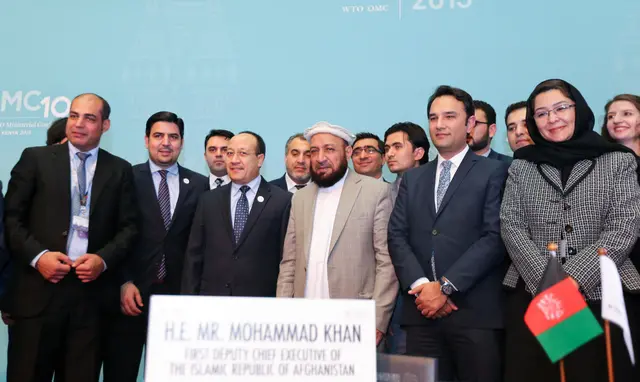The conclusion of the NATO-led forces combat mission in Afghanistan in late 2014 and withdrawal of major parts of the more than 120,000-strong combat troops has negatively affected the economy of the foreign-aid dependent country.
The tangible harm of the impact of the forces' withdrawal can be seen in the growing rate of unemployment, tumbling Afghan national currency afghani against foreign currencies, inflation and swelling poverty in the militancy-plagued country.
The government has also confirmed the fact that as deputy spokesman to the Presidential Palace, Sayed Zafar Hashimi admitted recently that Afghanistan's economy had been dependent on foreign aid over the past 13 years and the withdrawal of 120,000 international troops and 400,000 contractors has undermined the country's economy.
Nevertheless, he expressed with optimism that the government had strived hard to lay the foundation for permanent economic programs and lasting economic welfare in Afghanistan.
Thousands of Afghans have lost their jobs directly and indirectly due to the withdrawal of U.S. forces from Bagram airfield, according to locals, although there has been no comment from Afghans or U.S. officials who served there.
"I bought an oil tanker in 2009 for 48,000 U.S. dollars and supplied petrol to U.S. forces in Bagram for five years and each month I saved 800 U.S dollars, but with the withdrawal of troops in 2014 my business flopped and finally I sold the tanker for 18, 500 U.S. dollars," Mir Agha, a driver, told Xinhua.
He also added that dozens of oil supplying companies closed down their businesses due to the pullout of foreign troops and hundreds of thousands of people had been left jobless.
In 2015, the United Nations Human Development Office ranked the foreign-aid dependent Afghanistan as 171, out of 188 countries in the human development index and the least developed country in Asia, in spite of pumping billions of U.S. dollars over the past 14 years into the war-ravaged country.
According to the report of the UN entity, insecurity, poverty, endemic corruption and weak governance are the main reasons for hampering development in Afghanistan.
A high rate of unemployment parallel to increasing security incidents in the wake of foreign forces' withdrawal from Afghanistan in 2015 have prompted thousands of Afghans, mostly educated youth, to leave their war-torn country for the developed world especially Europe.
More than 150,000 Afghans, according to Afghan minister for Refugees and Repatriation Affairs, Sayed Hussain Alemi Balkhi, have migrated and applied for asylum abroad throughout the outgoing year.
Balkhi has also admitted that economic problems and security concerns are the main reasons for Afghans fleeing their country for the developed world in search of a better life.
"Doubtlessly the withdrawal of 120,000 foreign forces from Afghanistan has negatively affected the country's impoverished economy and badly damaged small industries in the country," Kabul University professor Musa Fariwar told Xinhua.
Injection of billions of dollars with little management in expenditure had promoted a "mafia-like" economy and eventually widened the gap between rich and poor in society; with a handful of people got super rich, the analyst said.
He also believed that no attention had been paid in strengthening infrastructures, building water dams, power plants and irrigation systems to create job opportunities and that is why the rate of unemployment is on a constant rise following the foreign forces' departure from the country.
The analyst also observed that the withdrawal of foreign forces from the country and the erroneous economic policy, especially in the sector of privatization and open market, has led to a huge trade deficit.
According to the analyst, Afghanistan's imports total 4 billion-5 billion U.S. dollars and its exports are worth 400 million-450 million U.S. dollars annually.
Meanwhile, the formal ground breaking ceremony for TAPI (Turkmenistan, Afghanistan, Pakistan and India) pipeline project on Dec. 13 has served as hope for the betterment of young Afghan's economic future.
"TAPI project if implemented would create thousands of job opportunities inside Afghanistan, besides adding some 500 million U.S. dollars annually to Afghanistan budget," deputy to Afghanistan small Industrialist Association, Abdul Jabbar Safi told local media.
To attract investment in Afghanistan, President Mohammad Ashraf Ghani has repeatedly said that his government is committed to change the militancy-plagued country from a consuming economy to an exporting one by ensuring durable peace and establishing a lasting relationship between the government and private sector based on trust and continued cooperation.
However, the majority of Afghans believe pessimistically that no one would invest a penny in the absence of lasting security in their country.
 简体中文
简体中文

